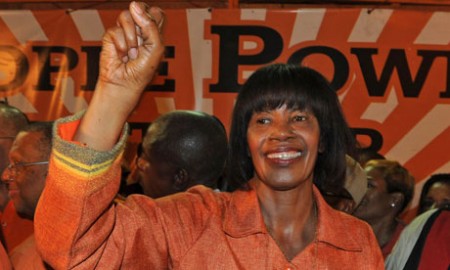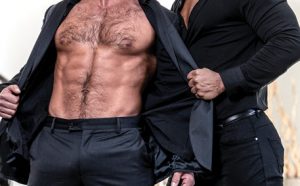by Owen Bowcott, Maya Wolfe-Robinson
Landmark case seeks to abolish colonial-era ‘buggery’ laws and stop murders and violent attacks on Caribbean homosexuals.
Two gay Jamaicans have launched a legal challenge to colonial-era laws, which in effect criminalize homosexuality, on the grounds that they are unconstitutional and promote homophobia throughout the Caribbean.
The landmark action, supported by the UK-based Human Dignity Trust, is aimed at removing three clauses of the island’s Offenses Against Persons Act of 1864, commonly known as the “buggery” laws.
The battle over the legislation – blamed by critics for perpetuating a popular culture of hatred for “batty boys”, as gay men are derided in some dance hall music – has also drawn a British lawyer into the debate, who said that Jamaica should not follow the legislative example of the UK.
The legal challenge is being taken to the Inter-American Commission on Human Rights, which is modeled on the European Court of Human Rights. Jamaica is not a full member and any ruling would only be advisory and not binding; it would, nonetheless, send out a strong signal of international disapproval.
When the Jamaican prime minister, Portia Simpson Miller, was elected last December, she said she would hire a gay person to serve in her cabinet and condemned discrimination. Despite early sympathetic signals, her government has not attempted to repeal the laws.
The Offenses Against Persons Act does not formally ban homosexuality but clause 76 provides for up to 10 years’ imprisonment, with or without hard labor, for anyone convicted of the “abominable crime of buggery committed either with mankind or any animal”. Two further clauses outlaw attempted buggery and gross indecency between two men.
Jamaica has one of the highest murder rates in the world. Murders of gay men are increasing, according to Dane Lewis, executive director of the Jamaica Forum of Lesbians, All-Sexuals and Gays (J-Flag), who is one of those petitioning the commission.
“This year alone there have been nine [murders],” he said. “The violence in Jamaica is having a spillover effect on other parts of the Caribbean: St Lucia now has a murder or so every year.”
One prominent victim was John Terry, the British honorary consul in Montego Bay, who was found dead in 2009 having been beaten and strangled. A note left on his body read: “This is what will happen to all gays.”
Many gay Jamaicans have fled abroad, some to the UK. In 2002, two gay Jamaican men were granted asylum in the UK because their lives were in danger from “severe homophobia” in the Caribbean.
Senior Jamaican police officers have in the past dismissed killings as the result of gay-on-gay “crimes of passion” – an interpretation disputed by civil rights groups.
In a House of Lords debate this week on the treatment of homosexual men and women in the developing world, the Conservative Lord Lexden said a “wave of persecution and violence has been suffered by gay people connected with [J-Flag]”. Intolerance of homosexuality, he noted, was a legacy of the British empire: “Today, 42 of the 54 nations of the Commonwealth criminalize same-sex relations.”
Jonathan Cooper, a London barrister who is the chief executive of the Human Dignity Trust, said: “We want to ensure that Jamaica satisfies its international human rights treaty obligations. We are supporting J-Flag in this case.
“These, and two accompanying cases supported by Aids-Free World, are the first cases before the Inter-American Commission but the issue is clear in international human rights law.”

Jamaican prime minister Portia Simpson Miller has condemned discrimination but not yet attempted to repeal the homophobic laws. Photograph: Collin Reid/AP
The UN’s International Covenant on Civil and Political Rights, to which Jamaica is a signatory, protects private adult, consensual sexual activity.
J-Flag has also received free pro-bono advice from the UK City law firm Freshfields Bruckhaus Deringer in drawing up their legal challenge.
One of the main bodies arguing to preserve the Offenses Against Person Act is the Lawyers’ Christian Fellowship in Jamaica (which has no connection to the UK Lawyers’ Christian Fellowship).
Paul Diamond, a British barrister and Evangelical Christian who specializes in religious discrimination cases, took part in a debate on Jamaica’s laws at the University of the West Indies last December.
“[Jamaicans] feel they are being pressurized by the UK and US governments in terms of visas and aid grants to modify their position [on homosexuality], which they say is morally based,” Diamond told the Guardian. “I told them that England has totally failed in finding any balance between religious [and civil] freedoms.”
The prime minister’s office in Jamaica did not respond to inquiries.
Anti-gay laws in the Caribbean
While Jamaica holds the crown for being the worst place in the Americas to be gay, the rest of the English-speaking Caribbean has a long history of homophobia. The British colonial administration entrenched “buggery laws” in its colonies, many of which remain in some form.
The Bahamas criminalizes same-sex activity between adults in public, although not in private. Jamaican, Guyanese and Grenadian laws do not mention lesbianism, but Trinidad and Tobago, Barbados, Antigua and St Lucia prohibit all acts of homosexuality.
Trinidad and Tobago’s state-sponsored homophobia extends further through immigration laws prohibiting “prostitutes, homosexuals or persons living on the earnings of prostitutes or homosexuals, or persons reasonably suspected as coming to Trinidad and Tobago for these or any other immoral purposes” from entering the country.
Although the law is not enforced, there were attempts from Christian groups to prevent Elton John headlining the Tobago Jazz Festival in 2007. Church leaders were worried about the singer’s potential influence on the “impressionable minds” of the island’s young people.
Anguilla, the British Virgin Islands, the Cayman Islands, Montserrat, and the Turks and Caicos islands were forced to repeal their sodomy laws in 2000, when Britain issued an order to its overseas territories, which it had to do to meet international treaty obligations.






